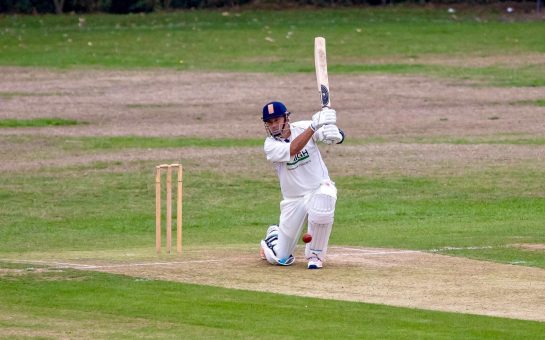The sun has set on an extraordinary summer for English cricket.
England won the World Cup after a remarkable final and though the Ashes didn’t exactly go to plan, we were treated to arguably the greatest test match ever courtesy of Ben Stokes’ heroics at Headingley.
For the first time since the 2005 Ashes series, cricket captured the public’s imagination.
Attendances at domestic games skyrocketed (Lancashire County Cricket Club reported a daily boost of 300% in Twenty20 ticket sales in the weeks after the World Cup final) and, in the form of Stokes, England had its first cricketing icon since Andrew Flintoff.
For all intents and purposes, cricket in this country appeared to be moving in the right direction. However, the English Cricket Board, in its infinite wisdom, decided that the game was missing something.
Last Thursday, they revealed the team names and the first draft picks for The Hundred, which is described as “an action-packed, unmissable new 100 ball cricket competition.”
Featuring eight franchise teams (men’s and women’s) from seven cities, the format is most similar to Twenty20 and will debut next season. Several England internationals, including Joe Root, Heather Knight, Jofra Archer and Amy Jones have already had their teams announced.
First mooted in 2016, the format marks a considerable break from the norm. 100 balls don’t divide neatly into six ball overs, so an innings will consist of ten overs of ten balls each.
A bowler can bowl either five or 10 of these balls but can only deliver 20 balls a game. The introduction of a simplified scorecard has also been proposed, which is a blessing, as they’ve managed to make cricket even more convoluted.
The Hundred is the ECB’s answer to glitzy T20 tournaments like the Indian Premier League and Australia’s Big Bash. City-based franchises will replace the county clubs in attempt to add a spark to the tournament and make it more stylish.
However, the move away from county cricket has the potential to alienate masses of loyal cricket fans. As a Liverpudlian, I support Lancashire. Although Merseyside is its own county, Liverpool’s historic connection to Lancashire makes the red rose county my natural cricketing home. However, the prospect of pledging my allegiance to the Manchester Originals is horrifying.
This will be the case for many people across the North West. Lancashire are able to represent the entire region, which shouldn’t be reduced to a single city, which has also happened with midlands teams Trent Rockets and Birmingham Phoenix.
The Yorkshire-based team are called Northern Superchargers, which despite sounding like a Conservative scheme, is a considerably more inclusive name. It may sound like the home for the non-Mancunian northerner, but you’d be hard pressed to find someone willing to support a team from Leeds on this side of the Pennines.
Though they haven’t given much thought to existing cricket fans, it is natural that the ECB are capitalising on a new audience generated by the World Cup and the Ashes. However, on a cricketing level, the introduction of a new format doesn’t appear to make much sense.
The Vitality T20 Blast has just had its most successful year and attendances are as high as they have ever been. Now, it is set to be side-tracked and The Hundred will become the new focal point of the domestic calendar.
The tournament will make its debut three months before the start of the men’s T20 World Cup. Granted, England international will presumably still play in next year’s T20 Blast, but it is questionable whether their preparation should be distracted with another form of the game.
At last, England’s limited overs approach is working. Why change it?
On the other hand, England’s test match team isn’t thriving. Performances throughout the Ashes made it apparent that the test team, particularly its batting, has suffered as a result of a focus on limited overs cricket.
This is just another reason why the introduction of The Hundred feels like a misstep. While you cannot begrudge traditional test batsmen like Joe Root and Rory Burns taking a lucrative contract to play in the new competition, you wonder whether the ECB should be encouraging them to focus on first-class cricket.
The County Championship could only dream of receiving the sort of money and attention that is being given to The Hundred. Not only does the Championship require care to survive, but the ECB may find that the test team would improve as a by-product.
One silver lining is that the BBC will broadcast ten games of the tournament. Having cricket available on free-to-air television can only be a good thing and could inspire a new audience.
However, the majority of the games will be on Sky Sports, meaning that the new audience will only be exposed to a limited amount of the competition and will miss out the build-up of the competition’s momentum. BBC’s allocation feels like a token gesture as Sky’s stranglehold on the English game continues.
Another attempt to modernise and commercialise the game, The Hundred will arrive to a fanfare next summer. If it catches the eye of the casual fan, it will be considered a success. Spreading the game to new audiences is vital, but here’s hoping that the ECB don’t forget that a lot of us are happy watching Lancashire grind out a fourth-day draw against Durham.
Image courtesy of Sky Sports via YouTube, with thanks.



